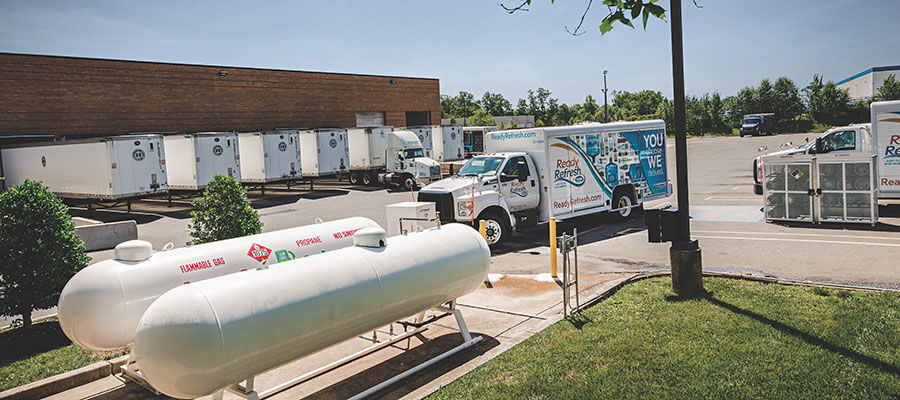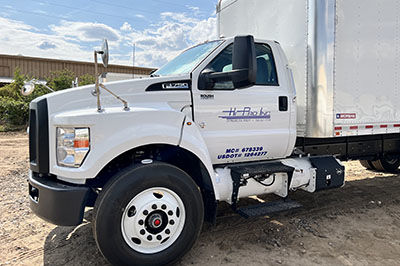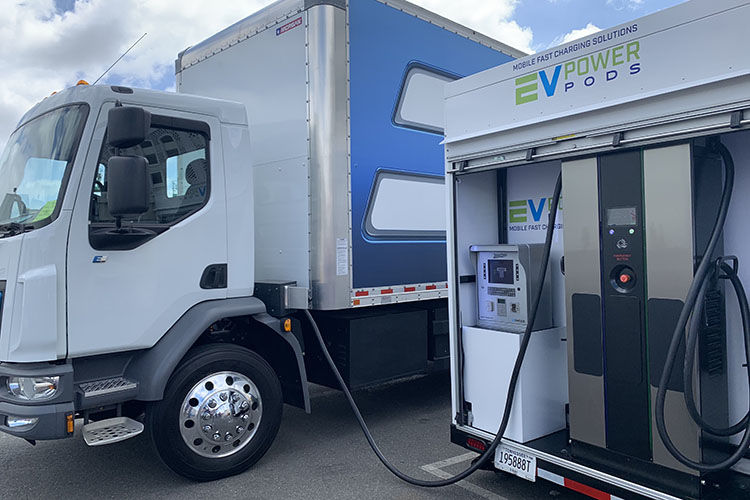Navigating Beyond Diesel: Essential Considerations for Alternative Fuels


Navigating Beyond Diesel: Essential Considerations for Alternative Fuels
It’s no longer a question of whether fleet owners will have to consider a transition to clean alternative fuels. Now the question is which alternative energy source makes the most sense for each fleet.
It can feel like a monumental task to do the research on multiple energy options. While an environmental benefit is the ultimate goal, fleets shouldn’t have to compromise in other areas to make it a reality.
Fleet owners can start their research by asking about the benefits of an alternative energy source in four main categories: the environment, finances, operations, and availability. If an alternative energy source can provide advantages in each of those areas, it’s worth digging deeper to find out more. Here are criteria to help fleet owners answer each question and explain how propane autogas might provide benefits for your fleet, no matter the size.
Environmental Benefits of Propane Autogas In Commercial Vehicles
Fleets will certainly reduce emissions by switching from a diesel or gasoline fleet. But fleet owners should dig a little deeper to learn if the environmental benefit might force them to compromise elsewhere. They should understand if the energy source will reduce emissions over the vehicle's lifecycle without increasing cost or losing efficiency.
SHOP ADVANCED FUEL VEHICLES NOW
For instance, propane autogas is an ultra-low emissions energy source with near-zero particulate matter emissions and nitrogen oxide (NOx) emissions that are 90 percent lower than the Environmental Protection Agency (EPA) standards.
The National Renewable Energy Laboratory, the Department of Energy’s Office of Energy Efficiency & Renewable Energy, and the Propane Education & Research Council recently partnered on a real-world study evaluating the emissions reductions of a propane autogas engine compared to diesel. Five propane autogas and 15 diesel class 6 box trucks were outfitted with data loggers during normal operation for two one-month periods in Colorado. The findings showed the propane autogas engines reduced CO2 emissions by 18.9%, NOx emissions by 98%, and SOx emissions were virtually eliminated.
Financial Benefits of Propane Autogas In Commercial Vehicles
At the end of the day, a fleet can’t be environmentally sustainable if it can’t be financially sustainable. Fleet owners need an alternative energy source that provides a return on investment long before the end of the vehicle lifecycle.
Propane autogas has the lowest total cost of ownership of any fuel when you factor in the price of the vehicle, fuel, fluids, maintenance, and repairs over the lifetime of the vehicle.
Propane autogas typically costs 40-50 percent less than diesel. And because propane autogas is a clean energy source, the engine is less costly to maintain than diesel since it doesn’t require expensive exhaust after-treatment systems diesel engines need to meet emission standards.
The Colorado study of the class-6 box trucks underscores these cost reductions. The propane autogas vehicles saved over $20,000 per vehicle in the first 12 months of the project compared to their diesel counterparts.

Operational Benefits of Propane Autogas In Commercial Vehicles
When it comes to operations, the question is whether the vehicle performs as well as or better than the original energy source without compromising on range.
Many medium-duty work truck fleets run on propane autogas because they need a range of 100 to 400 miles per day and the ability to carry a heavier payload. Not every energy source can meet those needs. For instance, electric vehicles will typically need to recharge long before a propane autogas vehicle needs to refuel.
As for performance, propane autogas engine technology has evolved in the last decade, bringing fleet owners performance comparable to gasoline or diesel. In fact, in the Colorado study, the data found that propane autogas trucks achieved similar duty cycles to diesel trucks.
But unlike diesels, propane autogas trucks also provide the added benefit of needing fewer filters and fluids to meet Tier 4 emissions standards, resulting in more uptime.
Availability of Commercial Vehicles Powered By Propane Autogas
Finally, fleet owners need to consider the availability of any new energy source. To ensure their fleet can remain operational, there needs to be a high-volume supply of the new energy source readily available everywhere and at any time.
Propane autogas is available now, in abundance, in communities all across America. In addition to the more than 1,500 public refueling stations available in the U.S., propane suppliers will work with fleet owners to set up private, customizable refueling infrastructure at low cost. Fleet owners can feel good knowing propane autogas infrastructure can easily scale with the fleet, and there are no concerns about infrastructure availability, unlike many other energy sources.
Plus, because propane autogas is a portable energy source, it can be delivered to all parts of the country regularly and in times of need. Even when the electric grid goes down, rendering EV charging or gasoline stations inoperable, propane autogas can continue to be delivered and pumped into vehicles. This added layer of resiliency provides peace of mind for fleet owners.

Transitioning to an alternative fuel doesn’t have to be a scary decision. By asking the right questions upfront to help guide research, fleet owners will be able to make an informed decision on how to meet their environmental, financial, and operational goals.
Written by
Tucker Perkins, president and CEO for the Propane Education & Research Council. He can be reached at tucker.perkins@propane.com.
SHOP ADVANCED FUEL VEHICLES NOW
Published on: April 17, 2024 Easing Into a Zero-Emission Commercial Vehicle Fleet: How One Hydrogen Truck Can Start a Revolution
Easing Into a Zero-Emission Commercial Vehicle Fleet: How One Hydrogen Truck Can Start a Revolution Exploring Practical Options To Lower Your Construction Fleet's Carbon Footprint
Exploring Practical Options To Lower Your Construction Fleet's Carbon Footprint Class 2b-3 Commercial Vehicles: Where We Are and Where We’re Going
Class 2b-3 Commercial Vehicles: Where We Are and Where We’re Going Propane Powers the Future of Fleet EV Charging
Propane Powers the Future of Fleet EV Charging Electric SUVs: The Overlooked Asset for Your Commercial Fleet
Electric SUVs: The Overlooked Asset for Your Commercial Fleet






